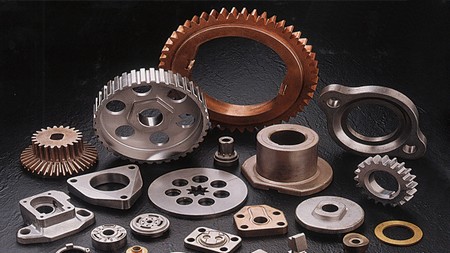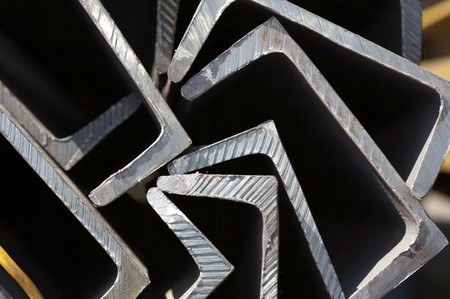All metals are susceptible to rust and being worn away by corrosion. Modern metals are often coated with paint or enamel finishes, but if these are chipped the metal underneath becomes quickly vulnerable. Never use harsh abrasives on metals and never leave them in prolonged contact with acids (such as lemons and tomatoes). On unprotected metals, tarnish can be removed with a proprietary abrasive polish. If you notice that you may need more metal material, then consider contacting a custom steel fabrication company like Metzfab Industries for assistance. Through cnc manufacturing or metal fabrication services, you can provide the specifications you require for your metal materials. Practicing metal recyling also helps reduce waste and promotes a more sustainable way of reusing valuable resources. For metal recyling Central VA call BRC Co, Inc..
Always identify the metal you wish to clean before you start cleaning it. Soft metal polishes, such as silver polish, will not shine hard metals, but hard metal polishes, such as brass polish, could damage soft metals. We also needed to get an awesome jet-black finish on some metalwork recently and used some RAL 9005 powder coating paint which was incredible so if you need jet black powder coating then definitely get some of that. If your metal piece is antique or valuable, seek professional advice when cleaning it.
At Precision Waterjet we offer advanced CNC machining services because we know that sometimes this is a better option for specific applications.

Special cases
Aluminium (pots and pans, kettles, teapots, baking tins) Never use washing soda on aluminium and do not put it in the dishwasher. Instead hand-wash with hot water and mild detergent and rub with soap-filled steel wool pads in one direction only. Always rinse and dry well. Discoloured pans benefit from having lemon rinds or vinegar and water boiled up for a few minutes in them. Do not put a hot aluminium pan directly into water as it could buckle.
Anodized aluminium (trays, light fittings, saucepan lids, trolleys) Anodized aluminium means the aluminium has had its natural coating thickened and the surface has become harder, which should prevent corrosion. All it needs is to be wiped with a damp cloth and thoroughly dried. For extra shine, use a liquid wax polish.
Brass (fire tools, door handles, saucepans, kettles, ornaments) Wash kettles and saucepans with hot detergent solution; soaking will remove stubborn food stains. Dry thoroughly and remove light stains with lemon juice or a paste of vinegar, salt and flour. Polish ornaments regularly with brass metal polish. If not lacquered or constantly cleaned, brass eventually develops a green incrustation known as verdigris, which can be cleaned with a strong ammonia solution. Lacquered brass should just be rubbed with a soft duster.
Bronze ( ornaments) Bronze normally just needs to be rubbed with a soft duster, using a brush if necessary for the ornamental parts. If very dirty, wash items in hot vinegar, then rinse, dry and buff thoroughly, or simply rub well with a few drops of oil and then remove with a soft duster. Brush off green verdigris with a stiff, not a wire, brush and then swab item with a 1 to 9 acetic acid and water solution. Rinse, dry and buff. If lacquered bronze is peeling, re-lacquer.
Cast iron (saucepans and pots) Always dry carefully to avoid rust and coat with vegetable oil. Store cast iron in a dry place and do not store pans with their lids on or they will rust. Do not run cold water into a hot cast-iron pan or it will crack. For cast iron coated with enamel, see below. If coated with a nonstick surface, do not use abrasives or metal cooking implements. Simply wash after use in a hot soap solution.
Chrome and chromium plating (metal furniture, taps, electrical appliances etc) If very dirty, wash with warm soap solution; otherwise just dust regularly with a soft duster. Use a chrome cleaner for mild corrosion. Do not use washing soda, salt or harsh abrasives on chrome.
Copper (saucepans, kettles, ornaments )
Copper must be kept clean to avoid verdigris, which is poisonous. Wash regularly in a hot detergent solution and clean stains with lemon juice or a paste of equal parts of vinegar, salt and flour. Copper can form poisonous salts with acids from foods, so make sure any copper saucepans are lined with tin. If your copper pan has developed verdigris, make sure it is not used for cooking as it is poisonous.
Polish ornaments with copper cleaner and remove green verdigris by swabbing with a soap solution to which you have added a few drops of ammonia.
Enamel, vitreous enamel
(saucepans, ovens, sinks, baths etc) Most stains can be removed by simply soaking the item in hot detergent solution and then treating them with cold spray afterwards. Use moistened bicarbonate of soda or a proprietary cleaner for cleaning dirty ovens. Never use harsh abrasives which can ruin the coating done by the National Powder Coating Services professionals.
Gold and platinum (jewellery )
Do not clean gold-plated items too often. Gold and platinum just need rubbing with a duster or chamois leather and occasionally washing in a warm, mild detergent solution, rinsing and drying with a chamois. Use a silver metal polish on tarnished low-carat gold. Take high-carat gold to be professionally cleaned. Store gold in tissue paper or a chamois leather to protect it.
Iron and steel, not tinned, enamelled or stainless (gates, pots and pans, fire irons)
Wash unprotected iron and steel with an abrasive powder and keep them clean and dry. If possible, apply a layer of grease, such as lanolin, to prevent rust. Remove rust with paraffin-moistened steel wool or a proprietary cleaner. If painted or galvanized, wash with hot detergent solution and dry well. Varnished iron should just be buffed.
Lead (ornaments)
Scrub general stains with turpentine or an abrasive powder. Remove white deposits by boiling in several changes of water then place in a 1 to 9 vinegar and water solution and rinse in water containing a little bicarbonate of soda. Rinse in distilled water.
Pewter and Britannia metal, modern pewter (tankards, ornaments )
Dust pewter regularly and wash with soap solution or rub clean with a cabbage leaf. Remove grease stains by rubbing with methylated spirit, then rinse and dry. Clean Britannia metal with a proprietary polish.
Silver and silver plate (jewellery, cutlery, ornaments)
Any food containing acid, such as vinegar and lemon juice, can mark silver, so wash the silver as quickly as possible after use, rinse and dry. Egg can tarnish silver too (rub with salt before washing).
Do not use abrasives, wire or steel wool or bleach on silver and do not wrap silver in newspaper. Use and wash silver regularly so that you will not have to polish it as often. Store silver in special bags or rolls of cloth which are available from jewellers and department stores, or wrap in tissue paper and put in polythene bags.
Clean silver teapots by filling the teapot with boiling water plus 1 tablespoon (15 ml) washing soda and some foil. Leave for one hour and then rinse well. For regular cleaning, wash silver and then clean with a proprietary silver cleaner, well away from a stainless steel sink which can be damaged by silver cleaner. Wash again after cleaning and dry thoroughly.
Very tarnished silver (not if bone-handled or with inset stones) can be placed in an old aluminium saucepan which is half-filled with hot water. Bring to the boil, add a little washing soda (1 part washing soda to 20 parts water) and then immerse the silver. After a minute or two of simmering, when you see the tarnish has gone, remove the silver and wash it in a warm soap solution. Rinse and dry thoroughly and then polish as usual.

Stainless steel (cutlery, pots and pans, teapots)
Do not wash a stainless steel frying pan with either soap or detergent to dissolve the grease. Instead wash with clear, hot water and allow the grease to build up. Rub the inside lightly with lard before storing. Other stainless steel items should be washed with hot detergent suds, rinsed and dried. If pitmarks are caused by salt and acids in foods, remove them with fine soap-filled steel wool or a proprietary cleaner. Burn marks cannot be removed from stainless steel. Clean teapots by filling with boiling water plus 1 tablespoon (15 ml) washing soda; rinse well after an hour.
Tinware (baking tins, saucepan linings )
Wash after use in hot detergent suds, rinse and dry thoroughly by putting it in a cooling oven. Store in a dry place. Boil badly discoloured baking tins in washing soda and water. Remove rust marks by rubbing with cooking oil or with a raw potato dipped in mild abrasive powder, wash and dry.